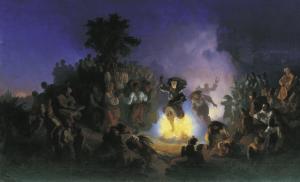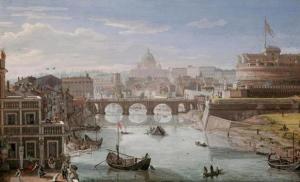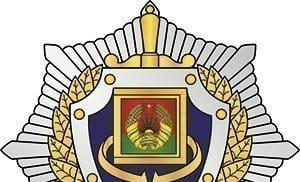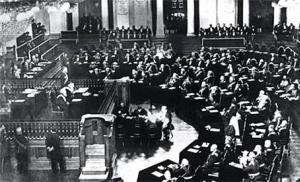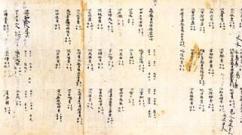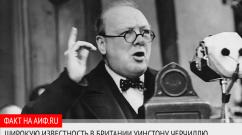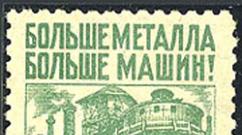Wooden horse ancient myths. Fear the Danaans Bringing Gifts: The Myth of the Trojan Horse
Phraseologisms play an important role in the modern language, as they allow us to convey the meaning of a sentence in a more vivid metaphorical language. For example, many have heard such a phrase as a Trojan horse. The meaning of a phraseological unit is far from clear to everyone, since the origins of its meaning lie in myth.
Historical roots of the modern language
As you know, most aphorisms have historical roots. Something is connected with mythology, something with history, but in any case, it is simply necessary to know your roots and the roots of your language. This allows you to see the modern language through the past, due to which it is enriched. So, the expression "Trojan horse" came to us from the era of the Trojan War.
Troy: the reasons for the strife between the Trojans and the Greeks
The history of the Trojan horse is full of mysteries, and to understand it, you need to talk a little about the city of Troy itself. A folk tale says that the future war for the city flared up from the conflict between Paris and Menelaus because of the beautiful Helen, who was the wife of the latter. According to legend, Paris seduced her, and she decided to sail away with him. Menelaus regarded such an act as a kidnapping and decided that this was a sufficient reason for declaring war. However, Troy was well and reliably fortified, so the Greeks failed to capture the city for a long time. However, they limited themselves to devastating the surroundings and undertaking campaigns against nearby cities. According to legend, the Greeks wanted to take over Troy, but they could not cope with physical strength. Then Odysseus comes up with an interesting idea: he proposed to build a huge wooden horse.
Cunning Odysseus
The legend says that the Trojans watched with considerable surprise as the Greeks built a wooden horse. The Greeks, on the other hand, made up a story that the Trojan horse they had created would be able to protect the city from Greek raids. That is why today the popular expression "Trojan horse" means a gift, a gift that was presented for the purpose of deception. But the Trojans believed this story and even wanted to bring the horse into the city. But there were also opponents of this decision, who called for throwing the structure into the water or burning it. However, soon a priest appeared in the city, who said that the Greeks created a horse in honor of the goddess Athena in order to atone for the sin of many years of bloodshed. Allegedly, after that, two snakes crawled out of the sea, which strangled the priest and his sons. The Trojans considered that all these events were omens from above, and decided to roll the horse into the city.
Beginning of the fall of Troy
According to archaeological and historical evidence, there really was a Trojan horse. The meaning of phraseology, however, cannot be understood if you do not think about the essence of the legend. So, the horse was brought into the city. And on the night after this hasty decision, Sinon released the hidden warriors from the cavity of the horse, who quickly killed the sleeping guards and opened the city gates. The people, who were fast asleep after the festivities, did not even offer resistance. Several Trojans broke into the palace to save the king. But the giant Neoptolem was still able to break the front door with an ax and killed King Priam. Thus ended the great history of the great Troy.
It has not yet been determined how many soldiers were in the Trojan horse. Some sources say that 50 people were hiding there, while others talk about 20-23 soldiers. But the essence of this does not change: the well-thought-out design in the form of a horse simply did not cause any doubts among the Trojans, which was the reason for their death. It is now generally accepted that the myth of the Trojan horse is an allegory of military cunning, which was once used by the Achaeans.
Symbols and allegories
It is noteworthy, but the horse as a creature has been a symbol of birth and death since ancient times. So, the Achaeans created their horse from spruce branches, while the cavity of the structure remained empty. Many researchers agree that this is a symbol of the birth of a new one. That is, it turned out that the Trojan horse brought death to the defenders of the city and at the same time became a symbol of the birth of something new for many nations.
By the way, at about the same time, events very important for history take place in the Mediterranean. A great migration of peoples began, when various tribes moved from the northern countries to the Balkans - Dorians, barbarians. This is what led to the destruction of the ancient Mycenaean civilization. Greece will be able to revive after a few centuries, while the destruction that fell on this state was so massive that the entire pre-Dorian history simply remained in legend.
What does Trojan horse mean?
Today, very often we use such phraseological units as "Trojan horse". This catchphrase has long become a household word. So we call some gifts that are presented with the aim of deceiving or destroying. Many researchers wondered why it was the horse that caused the collapse of Troy. But one thing can be noted: the Achaeans knew how to interest the Trojans. They understood that in order to lift the siege from the city, it was necessary to surprise the locals with something special so that they would trust and open the gates.
Of course, the presentation of the Trojan horse as a gift from the gods played a decisive role, since in those days it was considered an insult to the deity to neglect the sacred gift. And, as you know, joking with angry gods is very, very dangerous. And so it happened that a competent inscription on a wooden statue (recall, it was written on the side of the horse that this was a gift from the goddess Athena) led the Trojans to take this dubious gift to their city.
Treasure of Troy
So, the Trojan horse (we have already described the meaning of the phraseological unit) became the main reason for the collapse of the Trojan kingdom. It is known from history that Troy was famous for its horses, it was in this city that merchants from all over the world gathered, it was this city that was most often raided. For example, one legend says that the Trojan king Dardanus owned a herd of magnificent horses that descended from the god of the north wind Boreas. And in general, the horse has always been considered the closest animal to man: it was taken to war, it was used in agricultural work. Therefore, the appearance in front of the city gates of Troy, it was the horse that the locals could not but appreciate as a gift from the gods. Thus, without knowing who the Trojan horse is, the meaning of phraseology is not so easy to understand.
And therefore, it is not at all accidental that Troy, which held the defense for 10 years, fell precisely through the fault of the horse. Of course, it was all the fault and cunning of the Achaeans, who were able to find a weak spot and chose a kind of magical carrier in the face of a wooden horse for this. It is noteworthy that, according to archaeological data, Troy was just a small fortress. But at the same time, entire armies of hundreds of ships were sent to capture it.
Modern interpretation
Today, in a figurative sense, this concept also refers to a malicious program that is distributed by people themselves. Moreover, the virus got its name in honor of the mythological Trojan horse, since most virus programs act in a similar way: they disguise themselves as harmless and even useful programs and applications that the user runs on his computer. Despite the simplicity of the virus, its complexity lies in the fact that it is difficult to recognize its purpose in it. For example, the most primitive modifications can completely erase the contents of the disk at boot, and some programs can be built into certain applications on a PC.
167. Wooden horse
In the meantime, Athena had inspired Prilu, the son of Hermes, with the idea that Troy could be penetrated with the help of a wooden horse, and the master Epeus, the son of Panopaeus, a Phokian from Parnassus, volunteered to build such a horse with the help of Athena. Subsequently, of course, Odysseus appropriated all the merit to himself 1 .
b. Epeus brought thirty ships from the Cyclades to Troy. In the house of Atreus, he owned the position of a water carrier, which is displayed on the frieze of the temple of Apollo in Karfei. And although he was a skilled fist fighter and a skilled craftsman, he was born a coward. So the gods punished his father for breaking the oath - Panopey falsely swore in the name of Athena not to touch the Taphos booty that Amphitrion got. Since then, Epeus' cowardice has become proverbial 2 .
c. Epeus built a huge hollow horse using spruce boards, and provided a folding door on the side. Large letters were carved on the other side, which meant that the horse was dedicated to Athena: “In gratitude for the future safe return home, the Greeks dedicate this gift to the goddess” 3 . Odysseus persuaded the bravest Greeks to put on all their armor and climb a rope ladder through a folding door into the horse. The number of warriors inside the horse is called differently: twenty-three, thirty, even fifty, and, which is generally unbelievable, three thousand. Among them were Menelaus, Odysseus, Diomedes, Sthenelus, Acamant, Foant and Neoptolemus. Threats and promises managed to persuade Epey to join the detachment. He was the last to get up, pulled up the ladder after him, and, since only he knew the secret of the door, sat down next to the lock 4 .
d. At night, the Greeks who remained with Agamemnon did everything that Odysseus ordered them to do, namely: they burned their camp, went out to sea and hid off the coast of Tenedos and the Calidian Islands in anticipation of the evening. Only Odysseus' nephew Sinon, the grandson of Autolycus, did not sail with them, so that there would be someone to kindle a signal fire for the returning ships 5 .
e. At dawn, Trojan scouts reported that the Greek camp was completely burned down, and the Greeks themselves left, leaving a huge horse on the shore. Priam went there with several of his sons to see for himself, and as they stood amazed at the sight, Timoetes broke the silence. “Since this is a gift to Athena,” he said, “I propose to take it to the city and install it in the citadel dedicated to the goddess.” "Never! cried Kapis. - Athena favored the Greeks for too long. We must either burn the horse right away or break it open and see what's inside. Priam supported Timoeta. "We will put the horse on the skating rinks," he said, "no one dares to desecrate Athena's property." The horse was too big and could not pass through the gate. Even when they dismantled part of the wall, he got stuck four times. With incredible difficulty, the Trojans dragged the horse into the city, for security reasons, again laying a passage in the wall. There was another heated argument around the horse when Cassandra announced that armed men were hiding in the horse. She was supported by the clairvoyant Laocoön, the son of Antenor, who is sometimes mistakenly called the brother of Anchises. With a cry: "Fools, do not believe the Greeks who bring gifts!" - he threw his spear at the horse and it, trembling, stuck into his side, causing the weapon inside the horse to rattle. There were cries of "Destroy it!" "Throw off the wall!" But Priam's supporters stood their ground: "Let him stay" 6 .
f. The controversy subsided with the arrival of the chained Sinon, who was brought by two Trojan warriors. During interrogation, he testified that Odysseus had been trying to destroy him for a long time because he knew the secret of the murder of Palamedes. The Greeks, he continued, were really tired of the war and would have sailed home long ago if the weather had not interfered with them. Apollo advised them to propitiate the winds with a bloody sacrifice, as when they could not sail from Aulis for a long time. “After that,” Sinon continued, “Odysseus put Calchas in front of everyone and demanded that he name the victim. Calchas did not immediately give an answer, but retired for ten days, after which, undoubtedly bribed by Odysseus, he entered where the Council was sitting and pointed to me. Everyone present cheered his words, as everyone breathed a sigh of relief when they learned that they had not become a "scapegoat" and that I had been put in stocks. Suddenly, a favorable wind blew, everyone hurried to the ships, and in the general turmoil, I managed to escape.
g. So it was possible to deceive Priam, who mistook Sinon for a victim and ordered the blocks to be removed from him. “Now tell us about this horse,” he asked affectionately. Sinon explained that the Greeks lost the support of Athena, on whom they depended, after Odysseus and Diomedes stole the Palladium from her temple. As soon as they brought the statue to the camp, the flame engulfed it three times, and sweat appeared on the limbs - a sign of the wrath of the goddess. After that, Calchas advised Agamemnon to sail home and gather a new army in Greece, having received more favorable omens, and leave the horse as a propitiatory gift to Athena. "Why did they make the horse so big"? Priam asked. Sinon, well taught by Odysseus, replied: “To prevent you from dragging him into the city. Calchas predicted that if you despise this sacred statue, Athena will destroy you, but if the statue ends up in Troy, then you will be able to unite all the forces of Asia, invade Greece and conquer Mycenae.
i . Laocoon retired to find a victim and prepare an altar, while Apollo, warning Troy of the sad fate awaiting her, sent two huge sea serpents. The snakes sailed to Troy from Tenedos 9 and the Camedian Islands.
They climbed ashore and, entwined around the twin sons of Laocoön, named Antiph and Fimbreus (whom some people call Melanthes), crushed them. Hastening to their aid, Laocoön was waiting for the same terrible end. After that, the snakes crawled into the temple of Athena, one wrapped around the legs of the goddess, and the other hid under her auspices. Some, however, say that only one son of Laocoön died, and not at the altar of Poseidon, but in the temple of Apollo Fimbreysky. There are those who believe that Laocoön himself escaped death 10 .
j . This terrible sign convinced the Trojans that Sinon was telling the truth. Priam mistakenly thought that Laocoön was being punished for thrusting a spear into a wooden horse, without even thinking that the insult inflicted by the priest on Apollo could have been the reason. He immediately dedicated the horse to Athena, and although all the people of Aeneas returned in alarm to their homes on Mount Ida, almost all the Trojans of Priam decided to celebrate the victory with feasts and fun. Women gathered flowers along the banks, wove garlands from them and decorated the horse's mane, and a whole carpet of roses was laid out near his hooves 11 .
k . Meanwhile, the Greeks, who were sitting inside the horse, were trembling with fear, and Epeus was crying quietly with fright. Only Neoptolemus showed no emotion - not even when Laocoön's spear pierced the plank next to his head. From time to time, he asked Odysseus, who was placed at the head of the detachment, to give a sign to attack, threateningly clutching a spear and sword. But Odysseus disagreed. In the evening, Elena left the palace and walked around the horse three times, stroking its sides and, as if wanting to amuse Deiphobes, who was walking with her, began to tease the hidden Greeks, imitating the voices of each of their wives in turn. Menelaus and Diomedes, who were squatting in the middle of the horse next to Odysseus, were already ready to jump out of the horse when they heard their names, but Odysseus held them back, and when Anticles was about to answer, he covered his mouth with his palm, and some even say that he strangled his 12 .
l At night, tired of feasts and fun, the Trojans finally calmed down and fell asleep soundly. The silence was not broken even by the barking of dogs. Only Elena lay with her eyes open, and above her bedroom, as a signal to the Greeks, a bright round lamp burned. At midnight, just before the full moon appeared in the sky - it was the seventh full moon of that year - Sinon got out of the city and lit a signal fire on the tomb of Achilles, and Antenor began to brandish a torch 13 .
Agamemnon responded to these signals by setting fire to pine chips prepared in advance on the deck of his ship, which was already just a few arrow flights from the shore. Without delay, the entire fleet headed for the shore. Antenor, cautiously approaching the horse, announced in a low voice that everything was going well, and Odysseus ordered Epeus to open the horse's door 14.
m. Echion, the son of Portaeus, jumped out first, fell and broke his neck. The rest went down the rope ladder that Epeus had provided. Some of the soldiers ran to the city gates to open them for the approaching Greeks, the rest killed the sleepy guards of the citadel and the palace. But Menelaus could only think of Helen and immediately ran to her house 15 .
1 Hygin. Myths 108; Tsets. Scholia to Lycophron 219 et seq.; Apollodorus. Epitome V.14.
2 Euripides. Trojans 10; Dictys of Crete I.17; Stesichorus. Cit. by: Eustathius. Epeius to Homer c. 1323; Athenaeus X. s. 457; Homer. Iliad XXIII.665; Tsets. Cit. op. 930; Hesychius under the word Commentaries.
3 Homer. Odyssey VIII.493; Apollodorus. V.14-15.
4 Tsets. Cit. op. and Events after Homer (Posthomerica). 641-650; Quint Smirnsky. Events after Homer XII. 314-315; Apollodorus. Cit. op. v. 14; Little Iliad. Cit. by: Apollodorus. Cit. op.; Hygin. Cit. op.
5 Apollodorus. Cit. op. V.14-15; Tsets. Cit. op. 344.
6 Virgil. Aeneid II.13-249; Lesh of Mytilene. Little Iliad; Tsets. Cit. op. 347; Apollodorus. Cit. op. V.16-17; Hygin. Cit. op. 135.
7 Virgil. Cit. op.
8 Euphorion. Cit. by: Serv. Commentary on Virgil's Aeneid II.201; Hygin. Cit. op.; Virgil. Cit. op.
9 Apollodorus. Cit. op. V.18; Hygin. Cit. op.; Tsets. Cit. op.; Lysimachus. Cit. by: Serv. Commentary on Virgil's Aeneid II.211.
10 Servis. Cit. op.; Hygin. Cit. op.; Quint Smirnsky. Events after Homer XII.444-497; Arktin of Miletus. Destruction of Ilion; Tsets. Cit. op.; Virgil. Cit. op.
11 Homer. Odyssey VIII.504 ff.; Apollodorus. Cit. op. V.16-17; Arktin of Miletus. Cit. op.; Lesh of Mytilene. Cit. op.; Trifiodor. Capture of Troy 316 ff. and 340-344.
12 Homer. Cit. op. XI.523-532 and IV.271-289; Trifiodor. Cit. op. 463-490.
13 Trifiodor. Cit. op. 487-521; Servius. Cit. op. II.255; Lesh of Mytilene. Cit. op. Cit. by: Tsets. Cit. op. 344; Apollodorus, op. op. V.19.
14 Virgil. Aeneid II.256 et seq.; Hygin. Cit. op. 108; Apollodorus. Cit. op. V.20; Tsets. Cit. op. 340.
15 Apollodorus. Cit. op.
* * *1. Classical commentators on Homer were disappointed with the story of the wooden horse. Therefore, each of them sought to understand it in their own way: it was the Greek wall-beating machine in the form of a horse (Pausanias I.23.10); Antenor led the Greeks to Troy through a passage, on the door of which a horse was painted; the horse was a sign by which the Greeks distinguished themselves from the enemy in twilight and general panic; when Troy fell, the oracles forbade robbing houses on which a horse was painted, thanks to which Antenor's house remained intact; Troy fell as a result of a cavalry attack; finally, the Greeks, having burned down their camp, hid on Mount Hippias (“horse”).
2. It can be fully assumed that during the attack on Troy a tower on wheels was used, upholstered in wet horseskins to protect against arrows. With its help, it was possible to destroy the often mentioned weak part of the wall, i.e. the western one built by Aeacus (see 158.8). However, this hardly explains the legend according to which the leaders of the Greeks hid in the "belly" of the horse. Perhaps the Homerids invented this move to explain the no longer perceived sacred image with a walled city, a queen, a ritual assembly and a priest-king depicted at the moment of a new birth - appearing head first from a mare, which was a sacred animal like the Trojans (see 48.3 ) and the Aeacids (see 81.4). A wooden mare made of spruce boards (it is known that spruce was a tree that symbolized birth (see 51.5)), could have a ritual meaning, such as a wooden cow, with the help of which the sacred marriage between Minos and Pasiphae was performed (see 88 .y). Is the struggle between Odysseus and Anticles inspired by the depiction of twins quarreling in the womb (see 73.1)?
3. The plot with the son or sons of Laocoön is reminiscent of the story of how Hercules strangled two snakes (see 119.2). According to some versions, the brothers died in the temple of Apollo, and Laocoön himself, like Amphitrion, managed to escape safely. It is possible that we again meet the plot with snakes that lick the ears of boys in order to endow them with the gift of prophecy. Antiph obviously means "prophet", i.e. one who "speaks instead of" God.
4. At the level of the gods, this war was fought between the Trojan sea goddess Aphrodite and the Greek sea god Poseidon (see 169.1). That is why Priam destroys the priests of Poseidon.
5. After the fall of Troy, the story of "sweating" statues is quite common. This warning signal was first adopted by the gods of the Romans, and later by the Catholic saints who supplanted them.
6. In the most ancient works, the reputation of Epeus as a brave man began to be ironically applied to braggarts. It is known that there is only one step from boasting to cowardice (see 88.10).
Phraseologisms play an important role in the modern language, as they allow us to convey the meaning of a sentence in a more vivid metaphorical language. For example, many have heard such a phrase as the meaning of a phraseological unit is far from clear to everyone, since the origins of its meaning lie in a myth.
Historical roots of the modern language
As you know, most aphorisms have historical roots. Something is connected with mythology, something with history, but in any case, it is simply necessary to know your roots and the roots of your language. This allows you to see the modern language through the past, due to which it is enriched. So, the expression "Trojan horse" came to us from the era of the Trojan War.
Troy: the reasons for the strife between the Trojans and the Greeks

The history of the Trojan horse is full of mysteries, and to understand it, you need to talk a little about the city of Troy itself. A folk tale says that the future war for the city flared up from the conflict between Paris and Menelaus because of the beautiful Helen, who was the wife of the latter. According to legend, Paris seduced her, and she decided to sail away with him. Menelaus regarded such an act as a kidnapping and decided that this was a sufficient reason for declaring war. However, Troy was well and reliably fortified, so the Greeks failed to capture the city for a long time. However, they limited themselves to devastating the surroundings and undertaking campaigns against nearby cities. According to legend, the Greeks wanted to take over Troy, but they could not cope with physical strength. Then Odysseus comes up with an interesting idea: he proposed to build a huge wooden horse.
Cunning Odysseus

The legend says that the Trojans watched with considerable surprise as the Greeks built a wooden horse. The Greeks, on the other hand, made up a story that the Trojan horse they had created would be able to protect the city from Greek raids. That is why today the popular expression "Trojan horse" means a gift, a gift that was presented for the purpose of deception. But the Trojans believed this story and even wanted to bring the horse into the city. But there were also opponents of this decision, who called for throwing the structure into the water or burning it. However, soon a priest appeared in the city, who said that the Greeks created a horse in honor of the goddess Athena in order to atone for the sin of many years of bloodshed. Allegedly, after that, two snakes crawled out of the sea, which strangled the priest and his sons. The Trojans considered that all these events were omens from above, and decided to roll the horse into the city.
Beginning of the fall of Troy

According to archaeological and historical evidence, there really was a Trojan horse. The meaning of phraseology, however, cannot be understood if you do not think about the essence of the legend. So, the horse was brought into the city. And on the night after this hasty decision, Sinon released the hidden warriors from the cavity of the horse, who quickly killed the sleeping guards and opened the city gates. The people, who were fast asleep after the festivities, did not even offer resistance. Several Trojans broke into the palace to save the king. But the giant Neoptolem was still able to break the front door with an ax and killed King Priam. Thus ended the great history of the great Troy.
It has not yet been determined how many soldiers were in the Trojan horse. Some sources say that 50 people were hiding there, while others talk about 20-23 soldiers. But the essence of this does not change: the well-thought-out design in the form of a horse simply did not cause any doubts among the Trojans, which was the reason for their death. It is now generally accepted that the myth of the Trojan horse is an allegory that was once used by the Achaeans.
Symbols and allegories
It is noteworthy, but the horse as a creature has been a symbol of birth and death since ancient times. So, the Achaeans created their horse from spruce branches, while the cavity of the structure remained empty. Many researchers agree that this is a symbol of the birth of a new one. That is, it turned out that the Trojan horse brought death to the defenders of the city and at the same time became a symbol of the birth of something new for many nations.
By the way, at about the same time, events very important for history take place in the Mediterranean. A great migration of peoples began, when various tribes moved from the northern countries to the Balkans - Dorians, barbarians. This is what led to the destruction of the ancient Mycenaean civilization. Greece will be able to revive after a few centuries, while the destruction that fell on this state was so massive that the entire pre-Dorian history simply remained in legend.
horse?

Today, very often we use such phraseological units as "Trojan horse". has long been a household name. So we call some gifts that are presented with the aim of deceiving or destroying. Many researchers wondered why it was the horse that caused the collapse of Troy. But one thing can be noted: the Achaeans knew how to interest the Trojans. They understood that in order to lift the siege from the city, it was necessary to surprise the locals with something special so that they would trust and open the gates.
Of course, the presentation of the Trojan horse as a gift from the gods played a decisive role, since in those days it was considered an insult to the deity to neglect the sacred gift. And, as you know, joking with angry gods is very, very dangerous. And so it happened that a competent inscription on a wooden statue (recall, it was written on the side of the horse that this was a gift from the goddess Athena) led the Trojans to take this dubious gift to their city.

Treasure of Troy
So, the Trojan horse (we have already described the meaning of the phraseological unit) became the main reason for the collapse of the Trojan kingdom. It is known from history that Troy was famous for its horses, it was in this city that merchants from all over the world gathered, it was this city that was most often raided. For example, one legend says that the Trojan king Dardanus owned a herd of magnificent horses that descended from the god of the north wind Boreas. And in general, the horse has always been considered the closest animal to man: it was taken to war, it was used in agricultural work. Therefore, the appearance in front of the city gates of Troy, it was the horse that the locals could not but appreciate as a gift from the gods. Thus, without knowing who the Trojan horse is, the meaning of phraseology is not so easy to understand.
And therefore, it is not at all accidental that Troy, which held the defense for 10 years, fell precisely through the fault of the horse. Of course, it was all the fault and cunning of the Achaeans, who were able to find a weak spot and chose a kind of magical carrier in the face of a wooden horse for this. It is noteworthy that, according to archaeological data, Troy was just a small fortress. But at the same time, entire armies of hundreds of ships were sent to capture it.
Modern interpretation
Today, in a figurative sense, this concept also refers to a malicious program that is distributed by people themselves. Moreover, the virus got its name in honor of the mythological Trojan horse, since most virus programs act in a similar way: they disguise themselves as harmless and even useful programs and applications that the user runs on his computer. Despite the simplicity of the virus, its complexity lies in the fact that it is difficult to recognize its purpose in it. For example, the most primitive modifications can completely erase the contents of the disk at boot, and some programs can be built into certain applications on a PC.
Even after long battles, the Greeks could not take the city. Then Odysseus decided to act by cunning. He advised the Greeks to build such a huge wooden horse so that the most powerful warriors could hide in it. And when the Trojans bring the horse into the city, the heroes will come out at night and open the gates of the city. Odysseus assured that the only way to take Troy. The prophetic Calhant, to whom Zeus sent a sign, also urged the Greeks to resort to cunning.
The famous artist Epey with his student, with the help of the goddess Athena, built a huge wooden horse. It included armed soldiers. Aeneas closed the hole through which the heroes entered so tightly that it was impossible to even think that there was someone in the horse. Then the Greeks burned all the buildings in their camp, boarded a ship and sailed to the open sea.
From the high walls of Troy, the besieged saw an extraordinary movement in the Greek camp. Suddenly they noticed that thick clouds of smoke were rising from the camp of the Greeks. Rejoicing, the Trojans left the city and went to the camp, which was really abandoned, in some places the buildings were still burning down. They were sure that the siege was finally over, all the troubles had passed, and now they could indulge in peaceful labor.
Suddenly, the Trojans stopped in amazement when they saw a wooden horse. They looked at it and wondered what kind of amazing structure it was. Some of them advised to throw the horse into the sea, others - to take it to the city and put it on the acropolis. The dispute began. Then the priest of the god Apollo, Laocoön, appeared before the disputants. He ardently began to persuade his fellow citizens to destroy the horse.
Laocoon was sure that the horse was some kind of military trick invented by Odysseus. Laocoön did not believe that the Greeks had left Troy forever. He begged the Trojans to beware of the horse. Laocoon grabbed a huge spear and threw it at the horse. The statue shuddered from the blow, and the weapon rattled muffledly inside it. But the gods darkened the mind of the Trojans - they still decided to take the horse to the city.
Suddenly a loud scream was heard. It was the shepherds who were leading the bound prisoner, who surrendered voluntarily. This prisoner was the Greek Sinon. The Trojans surrounded him and began to mock him. Sinon stood silently, timidly looking at the enemies surrounding him. Finally, he spoke. He complained bitterly, shedding tears, about his evil fate. Touched by the tears of Sinon Priam and all the Trojans. They began to ask the detainee who he was and why he stayed. Then Sinon told a fictitious story that Odysseus invented for him in order to deceive the Trojans.
The Trojans believed the cunning Greek. Priam ordered to release him and asked what this wooden horse, left by the Greeks in the camp, meant. This was the only question Sinon had been waiting for. Calling the gods to witness that he was telling the truth, Sinon said that the horse was left to appease the formidable Athena. The Trojans believed Sinon. Deftly he played the role assigned to him by Odysseus.
The Trojans were further convinced that Sinon was telling the truth, terrible snakes sent by Athena. They quickly swam to the shore, wriggling in the waves. Creatures crawled ashore and all the Trojans fled in horror. The snakes rushed at the two sons of Laocoön and coiled around them. Hastened to help the sons of Laocoön, but the snakes wrapped around him. With their sharp teeth they tormented the bodies of the priest and his two sons. He tried to tear off the unfortunate snake from himself and free his children, but in vain. The poison penetrated deeper and deeper into the body.
The suffering of Laocoön and his sons was terrible. Laocoon died, seeing the terrible death of his innocent children, he died because he wanted, contrary to the will of God, to save his homeland. The snakes, having completed their vile deed, crawled away and hid under the shield of the statue of Athena.
The death of Laocoon finally convinced the Trojans that they should bring the wooden horse to Troy. They dismantled part of the city wall, since the huge statue could not be brought through the gate. The horse stopped four times, hitting the wall when it was dragged through the gap, and the weapons of the Greeks thundered menacingly in it from the shocks, but the townspeople did not hear this. Finally, they dragged the horse to the acropolis.
Prophetic Cassandra was horrified when she saw the horse. She foreshadowed the death of Troy, but the Trojans answered with laughter - they never believed her predictions.
In deep silence, the warriors sat on horseback, sensitively listening to every sound coming from outside. They heard how beautifully curly Elena called them, calling them by name, imitating the voice of their wives. Odysseus restrained one of the heroes by force, clamping his mouth shut so that he would not answer.
The night has come. Troy fell into a deep sleep. Sinon's voice was heard at the wooden statue - he let the heroes know that now they can go out. Sinon managed to build a large fire at the gates of Troy. This was a sign to the Greeks who had taken refuge behind Tenedos, so that they hurried to the city. Cautiously, trying not to make noise with their weapons, the heroes got out of the horse; The first were Odysseus and Aeneas. The heroes scattered along the sleepy streets of Troy. Houses blazed, illuminating the dying city with a bloody glow. Other Greeks also came to the aid of the heroes. A terrible battle began. The Trojans defended themselves with what they could.
In anger, Menelaus and the beautiful Helen would have killed, but Agamemnon kept him. The goddess Aphrodite again awakened in Menelaus's chest love for Elena, and he solemnly led her to his ship.
Of all the heroes of Troy, only Aeneas escaped, carrying his old father Anchises and his little son Ascanius out of the city. The Greeks also spared the Trojan hero Antenor. He repeatedly advised the Trojans to hand over the beautifully curly Helen and the treasures of Menelaus stolen by Paris.
Troy burned for a long time. Puffs of smoke rose high into the sky. The gods mourned the death of the great city. This huge funeral pyre was visible far away. Pala Troy is the most powerful city in Asia. The Achaeans won, but at what a high cost!
Terrible hordes governor, Agamemnon, king of kings
He surveyed the crowds of the people who survived the prey -
And he bowed his head
Obsessed with a sad thought -
Many of them came under Troy,
Few will return with him...
Homer, The Iliad.
The Trojan War did not bring success to either side. She turned into a tragedy, but generated not by chance, but by inscrutable ways of fate. The fate of Troy, the Trojans, the Achaean heroes was predicted and inexorable. For most of its participants, the Trojan War brought death or shame, exile.
| |
Odysseus' plan. The last days of Troy had come, but the Trojans had no idea about it. On the contrary, the death of the most glorious Greek heroes gave them courage. And they did not know that the cunning Odysseus had already come up with how to destroy their city.
The Trojans got up one morning, came to the city walls and could not believe their eyes: the Greek camp was empty. Not a single warrior remained on the plain near Troy, not a single ship on the sea surface! Joyfully they poured out of the city onto the shore: the siege was over, all the disasters were left behind! In the middle of the Greek camp, the Trojans saw a huge wooden horse. They could not understand what kind of building was in front of them; some advised to take the horse to the city, others - to drown him in the sea. The priest of Apollo, Laocoon, approached the disputants and began to persuade them to destroy the horse, saying that it was not without reason that he had been abandoned. As proof, the priest grabbed a spear and threw it at a wooden horse; the horse shuddered from the blow, the weapon rang menacingly inside him. But the gods darkened the mind of the Trojans, they did not hear anything. At this time, the Trojan shepherds brought a bound captive. He said that he was Greek by birth and his name was Sinon. “Odysseus planned to destroy me, and before sailing he persuaded the Greeks to sacrifice me to the immortal gods. I managed to escape, I wandered for a long time in the thickets, until the last Greek warrior left the shore. And the Greeks left the horse here to propitiate the formidable Pallas Athena. He will be a mighty defense of Troy if they bring him into the city.
The Trojans believed Sinon and released him. Here another miracle, revealed by Athena, was seen by the Trojans. Two monstrous snakes appeared on the sea. They quickly swam to the shore, wriggling in countless rings. Their eyes sparkled with fire. They crawled out onto the shore, rushed at Laocoon and his two sons, wrapped them around them, tormented their bodies with poisonous teeth. The poison penetrated deeper and deeper into the blood of the unfortunate, they died in terrible agony. Thus died Laocoön, who, contrary to the will of the gods, wanted to save his homeland. The snakes, having committed a terrible deed, hid under the shield of Pallas Athena.
The death of Laocoön further convinced the Trojans that the wooden horse should be brought into the city. They dismantled part of the city wall, and with jubilation, singing, music dragged the horse with ropes to Troy. The prophetic Cassandra was horrified when she saw the horse, but, as always, the Trojans only laughed at her words.
Sinon works. The night has come. The Trojans slept peacefully. And then Sinon released from the horse the warriors hidden in it, led by Odysseus. They scattered through the streets of the city, and Sinon lit a large fire near the walls of Troy; the Greeks on the ships noticed the fire: they did not sail away, but hid nearby, near one of the islands. They turned towards the shore, disembarked and easily entered the city through the demolished wall.
Last fight. A fierce battle began on the streets of Troy, with which the Trojans could defend themselves from the Greeks: they threw stones and burning brands from the roofs. The houses were on fire, illuminating the perishing Troy with a bloody glow. The Greeks spared no one, the streets of the city were covered with blood. Old Priam fell in his palace, he could not fight with young heroes, one by one all his sons died; even the young son of Hector was not spared by the victors: they pulled him out of the hands of Andromache and threw him onto stones from the high walls of Troy.
Troy burned for a long time. Puffs of smoke rose high into the sky. The glow illuminated the night sky, and by this glow the neighboring peoples recognized that the most powerful city in Asia had perished.
